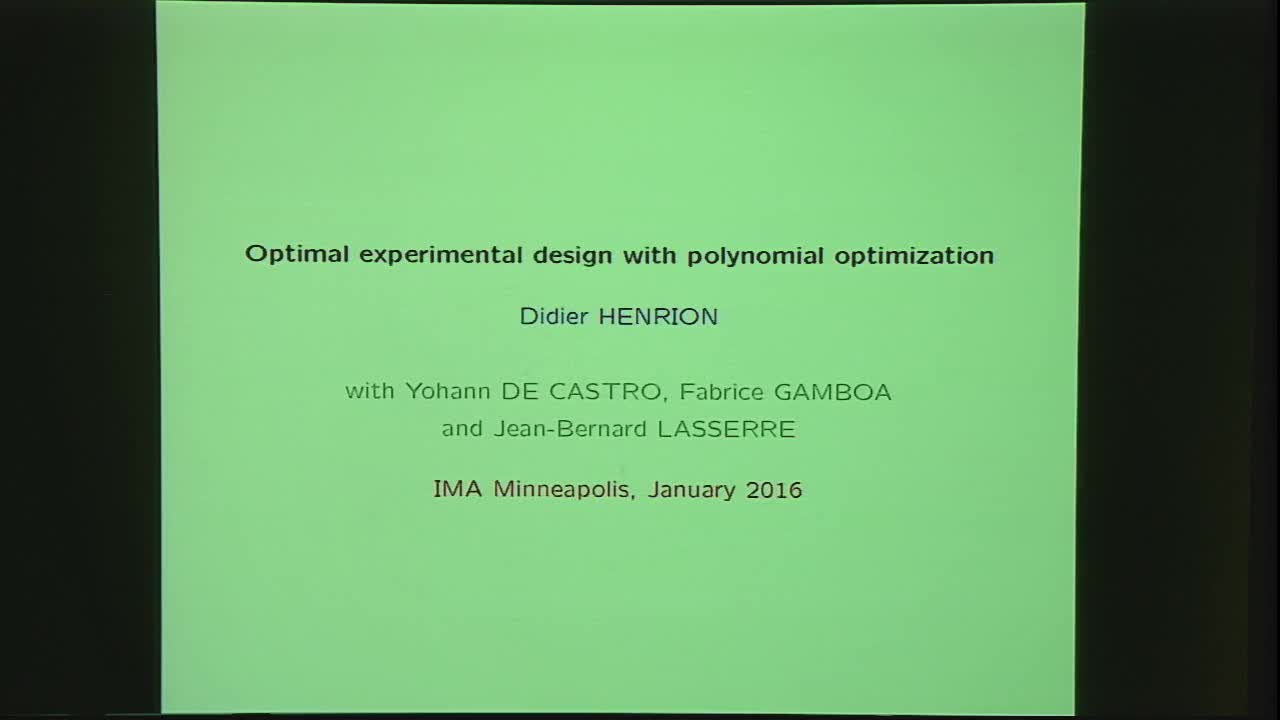Optimal Experimental Design with Polynomial Optimization
Presenter
January 26, 2016
Keywords:
- optimal experimental design; polynomial optimization; semidefinite programming
MSC:
- 90C22
Abstract
Optimal experimental design consists of choosing measurements to maximize the information or, equivalently, minimize noise. For linear regression, a popular criterion is D-optimality, which seeks to maximize the determinant of the information matrix. Maximization is with respect to the weights of a discrete measure whose atoms (measurement basis vectors) are given a priori. The information matrix contains moments of degree two of this measure, and
its inverse is the error covariance matrix. The resulting determinant
maximization problem was one of the target applications motivating the
development of semidefinite programming in the mid 1990s.
In the light of recent advances in polynomial optimization and moment-
sum-of-squares relaxations, we revisit the optimal experimental design problem and extend these results on the one hand from linear to polynomial regression,and on the other hand from discrete measures with a priori given atoms to arbitrary probability measures on general semialgebraic sets. Numerical experiments reveal that sparse D-optimal atomic measures can be constructed easily e.g. for quadratic or cubic regressions on the three-dimensional sphere.
This is joint work with Yohann de Castro, Fabrice Gamboa and
Jean-Bernard Lasserre.
